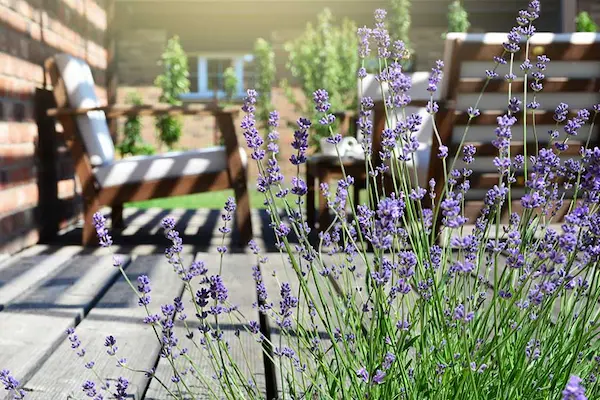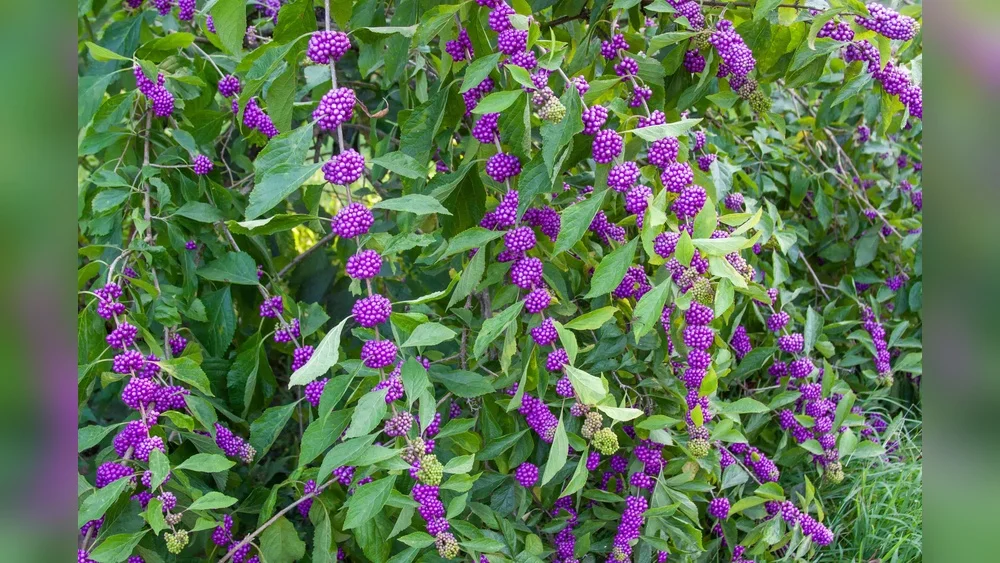If you’re tired of mosquitoes turning your Florida backyard into their personal playground, you’re not alone. These tiny pests can quickly ruin your outdoor fun, leaving itchy bites and frustration behind.
But what if you could enjoy your patio or garden without constantly swatting them away? The secret lies in nature itself—certain plants naturally keep mosquitoes at bay. By choosing the right plants for your Florida home, you can create a beautiful, fragrant space that repels mosquitoes without relying on harsh chemicals.
Keep reading to discover the best plants that will help you reclaim your outdoor space and enjoy mosquito-free moments all season long.

Credit: florida.bugoutservice.com
Mosquito-repelling Plants For Florida
Florida’s warm climate makes mosquitoes a common problem outdoors. Growing mosquito-repelling plants offers a natural way to reduce their presence. These plants release scents that mosquitoes dislike. Planting them around patios, gardens, and doorways helps keep bugs at bay. Here are some of the best mosquito-repelling plants suited for Florida’s environment.
Citronella Grass Benefits
Citronella grass is famous for its mosquito-repelling scent. It produces oils used in many insect repellents. The strong lemon-like fragrance confuses mosquitoes and drives them away. It grows well in Florida’s warm weather and can be planted in pots or garden beds. Citronella grass also adds a lush, green texture to any landscape.
Lavender’s Mosquito Defense
Lavender emits a fresh, floral scent that mosquitoes hate. Its purple flowers attract bees and butterflies but repel mosquitoes. Lavender thrives in sunny spots with good drainage. Besides repelling mosquitoes, it adds color and fragrance to your garden. Dry lavender can also be used indoors to keep bugs away.
Marigolds As Natural Barriers
Marigolds produce a distinct smell that mosquitoes avoid. Their bright orange and yellow blooms brighten up any space. Marigolds are easy to grow and bloom for a long time. Plant them along walkways or near doorways to create a natural mosquito barrier. They also repel other harmful insects.
Rosemary’s Dual Role
Rosemary is a hardy herb with a strong pine-like scent. Mosquitoes dislike its aroma, making it a good repellent plant. It grows well in Florida’s climate and can be used fresh or dried in cooking. Rosemary adds both beauty and utility to your garden, serving as a mosquito deterrent and kitchen herb.
Catnip’s Surprising Effect
Catnip is known for attracting cats, but it also repels mosquitoes effectively. Studies show catnip can be even more effective than some chemical repellents. It grows quickly and spreads easily, so it needs some control. Plant catnip in sunny areas to enjoy fewer mosquitoes outdoors.
Basil And Its Strong Scent
Basil’s strong smell keeps mosquitoes away while enhancing your meals. Sweet basil grows well in Florida’s heat and humidity. It can be grown in containers or garden beds near sitting areas. Crushing basil leaves releases more scent, boosting its mosquito-repelling power.
Horsemint’s Citrus Aroma
Horsemint has a refreshing citrus scent that mosquitoes dislike. It attracts butterflies and beneficial insects to the garden. This plant grows well in Florida’s climate and spreads easily. Horsemint can be used fresh in teas or as a decorative plant.
Scented Geranium Varieties
Scented geraniums come in many types with different aromas, such as lemon or rose. Their strong scents deter mosquitoes from nearby areas. These plants grow well in warm climates and bloom with colorful flowers. Plant scented geraniums near patios to enjoy their fragrance and mosquito protection.
Thyme’s Ground Cover Advantage
Thyme is a low-growing herb that spreads across the ground. Its strong scent keeps mosquitoes at a distance. Thyme thrives in sunny spots with well-drained soil. It also attracts pollinators and can be harvested for cooking. Using thyme as ground cover helps reduce mosquito presence near your home.

Credit: www.reddit.com
Effective Plant Placement
Placing mosquito-repelling plants correctly boosts their effectiveness. Strategic placement helps spread scents where mosquitoes gather. Thoughtful plant arrangement creates natural barriers to keep pests away.
Understanding where mosquitoes thrive and where people spend time guides plant placement. This ensures the plants work well and enhance outdoor comfort.
High-traffic Area Strategies
Place plants near doors, patios, and seating spots. These areas attract both people and mosquitoes. Positioning plants here helps block mosquitoes before they approach.
Plant citronella, marigolds, or lavender around entrances. Their strong smells confuse mosquitoes and reduce bites. Use clusters of plants to strengthen the scent barrier.
Using Potted Plants Wisely
Potted plants offer flexibility in placement. Move pots to different spots based on mosquito activity. This helps target problem areas quickly.
Keep pots near walkways and outdoor gathering places. Elevate pots to improve scent spread. Regularly water and care for potted plants to keep them healthy.
Combining Plants For Better Results
Mix different mosquito-repelling plants for stronger protection. Each plant emits unique scents that mosquitoes dislike. Combining lavender, rosemary, and catnip creates a multi-layered defense.
Arrange plants at varying heights to cover more area. This mix also adds beauty and variety to your garden. Rotate plants seasonally to maintain their effectiveness.
Maximizing Plant Potency
Maximizing the potency of mosquito-repelling plants enhances their effectiveness in Florida’s humid climate. Stronger scents and proper timing boost the natural defenses these plants offer. Simple techniques help release more oils and fragrances to keep mosquitoes at bay. Understanding how to harvest and use these plants correctly ensures you get the best results for your outdoor spaces.
Crushing Leaves For Stronger Scent
Crushing leaves releases essential oils that repel mosquitoes more effectively. Gently rub the leaves between your fingers before placing them near sitting areas. This simple step intensifies the plant’s natural aroma. Plants like citronella and rosemary benefit greatly from this method. Repeat crushing every few hours to maintain a strong scent barrier.
Harvesting And Using Essential Oils
Extracting essential oils from mosquito-repelling plants concentrates their power. Use a mortar and pestle or a blender to crush fresh leaves. Add the crushed leaves to carrier oils like coconut or olive oil. Apply the mixture to your skin or spray it around outdoor spaces. Essential oils last longer and provide a stronger mosquito defense.
Timing And Seasonal Considerations
Plant potency varies with the time of day and season. Early morning and late afternoon are best for crushing leaves or harvesting oils. Mosquito activity peaks during warm, humid months in Florida. Keep plants healthy with regular watering and pruning to maintain strong scents. Rotate plants throughout the year to keep your mosquito defense active.
Designing A Mosquito-free Garden
Designing a mosquito-free garden in Florida requires smart planning and plant choices. The goal is to create a space that naturally repels mosquitoes while still looking beautiful. Combining the right plants with good garden design helps keep these pests away. This approach reduces the need for chemical sprays and creates a healthy outdoor area.
Using mosquito-repelling plants effectively means thinking about where to place them. Proper layout and care make the plants more powerful in keeping mosquitoes off. It is also important to mix these plants with your vegetables and keep everything healthy. The result is a garden that supports both pest control and food growing.
Plant Layout Tips
Place mosquito-repelling plants near seating areas and doors. This blocks mosquitoes from reaching people. Group plants with strong scents like citronella, lavender, and rosemary together. This increases their ability to mask human scents. Use taller plants at the garden edges to form natural barriers. Smaller plants go near walkways and patios. Keep plants healthy and spaced well to improve airflow. Good air movement reduces mosquito hiding spots.
Integrating Mosquito-repelling Plants With Vegetables
Mix mosquito-repelling plants with vegetables to protect crops. Marigolds and basil work well alongside tomatoes and peppers. These plants confuse mosquitoes and other pests. Plant herbs like rosemary and catnip near leafy greens. They help reduce insect damage. Avoid overcrowding to give vegetables enough sunlight. This keeps plants strong and less attractive to pests. A balanced garden supports healthy growth and natural pest control.
Maintaining Healthy, Pest-resistant Plants
Keep plants well-watered but avoid standing water. Mosquitoes breed in stagnant water. Prune dead leaves and flowers to prevent disease. Healthy plants produce stronger scents that repel mosquitoes. Use natural compost to feed your plants. Strong roots help plants fight pests better. Check plants regularly for signs of stress or insect damage. Early care keeps the garden vibrant and mosquito-resistant.
Additional Natural Mosquito Deterrents
Natural mosquito deterrents go beyond just planting mosquito-repelling plants. Using a combination of strategies improves your chances of keeping mosquitoes away. These methods work well with plants and create a healthier outdoor space. Here are some effective additional ways to reduce mosquitoes in Florida.
Companion Plants To Avoid Mosquitoes
Some plants naturally repel mosquitoes and work well together. Planting citronella grass near marigolds boosts protection. Lavender and rosemary also make good companions. Their combined scents confuse and deter mosquitoes. Grouping these plants near patios or entrances helps keep bugs away.
Water Management To Reduce Breeding
Mosquitoes breed in stagnant water. Removing standing water reduces their numbers significantly. Empty water from pots, birdbaths, and gutters regularly. Fix leaks and improve drainage in your yard. Using plants like water lettuce can help absorb excess water. Keeping your space dry limits mosquito breeding spots.
Using Plants Alongside Other Repellents
Plants alone may not stop all mosquitoes. Combining plants with other natural repellents increases success. Essential oils like citronella or eucalyptus spray work well with mosquito-repelling plants. Mosquito traps and fans can add extra protection. Layering these methods creates a more comfortable outdoor area.

Credit: www.myheronhome.com
Frequently Asked Questions
What Is The Best Plant To Keep Mosquitoes Away In Florida?
Citronella grass is the best plant to keep mosquitoes away in Florida. Lavender, marigolds, rosemary, and catnip also repel mosquitoes effectively. Plant them near outdoor seating or entryways for best results. Crushing leaves releases stronger scents that deter mosquitoes naturally.
What Plant Do Mosquitoes Hate Most?
Mosquitoes hate citronella grass most due to its strong scent. Lavender, marigolds, rosemary, and catnip also repel mosquitoes effectively.
What Month Are Mosquitoes The Worst In Florida?
Mosquitoes are worst in Florida from June to September. Warm, humid summer months boost their activity and breeding.
What Is A Natural Mosquito Repellent For Florida?
Natural mosquito repellents for Florida include citronella grass, lavender, marigolds, rosemary, and catnip. Plant these near outdoor areas. Crushing their leaves releases stronger scents that deter mosquitoes effectively.
Conclusion
Choosing the right plants helps reduce mosquitoes in Florida yards. Citronella grass, lavender, and marigolds work well to keep bugs away. Rosemary and catnip add natural protection and smell great too. Planting these around your home creates a pleasant, pest-free space.
These plants need simple care and can thrive in Florida’s climate. Enjoy outdoor time without worrying about mosquito bites. Start with a few and watch your garden become a peaceful retreat. Nature provides easy, safe ways to stay comfortable outside.

